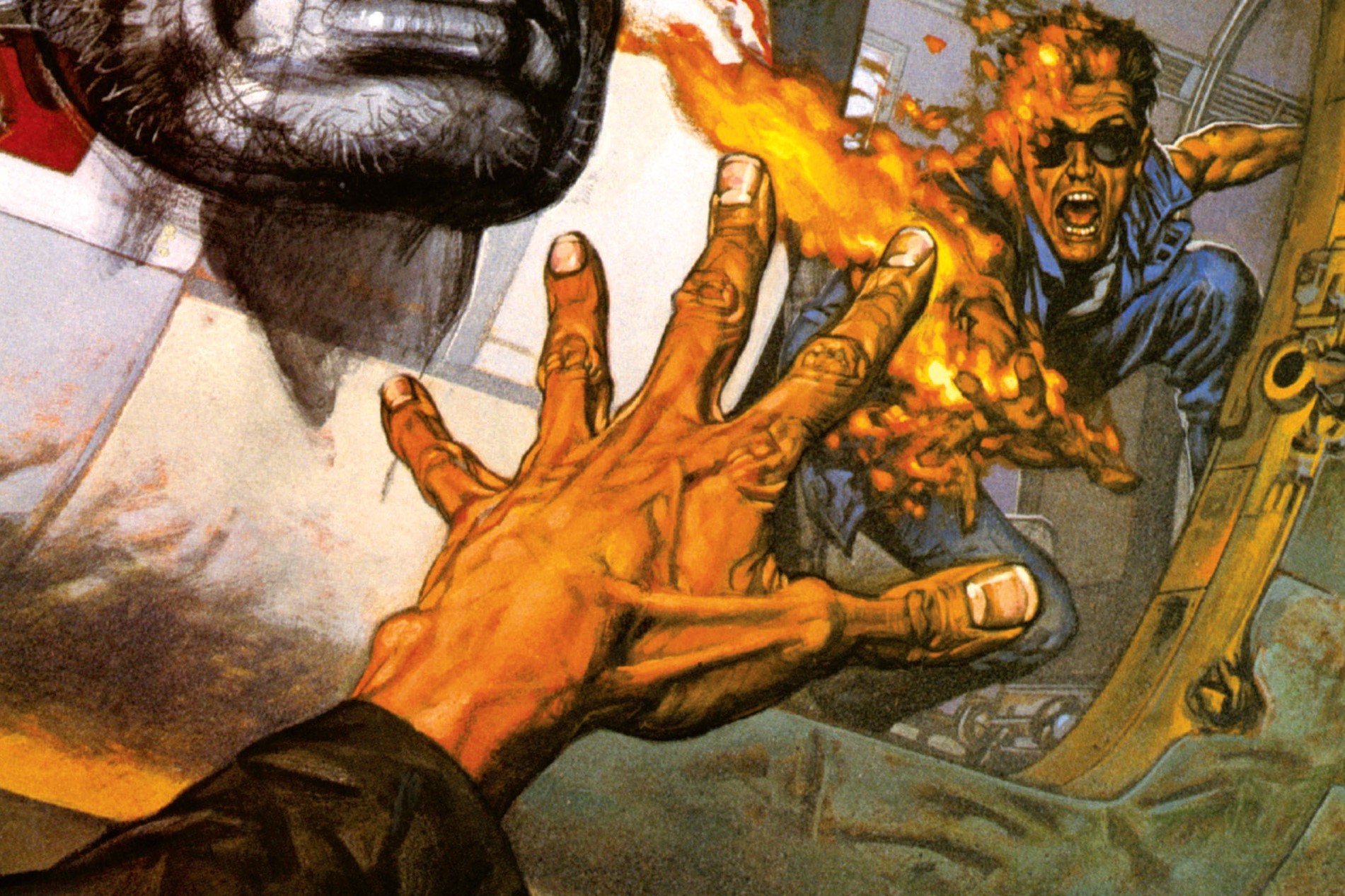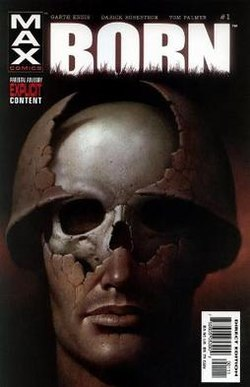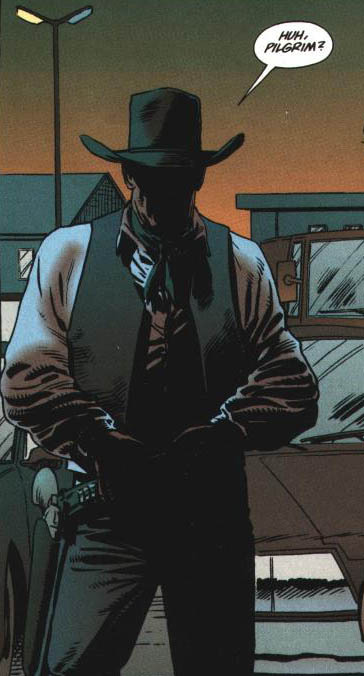
This week, special guest Andy joins us as Jesse Custer takes a trip to the desert and Garth Ennis takes us back once more to Texas and the Spaceman’s war days in The Land of Bad Things.
Show Notes
2:14 – Sean is referring to the surreal final episode of The Prisoner.
3:12 – We should clarify that burning alive is not the penalty for resisting the Word of God – the vampire Cassidy was at risk because he was leaning out of the plane into the sunlight to save Jesse.
5:26 – Jesse met and named Skeeter in Preacher #40, “Arsefaced World.”
6:14 – To be fair, getting stoned in the desert isn’t all that safe either.
6:40 – Val Kilmer did star as Jim Morrison in the 1991 biopic The Doors – by the way, this is not the first time Garth Ennis has disparaged the Doors’ music in Preacher. Kilmer also appeared as an imaginary Elvis that appeared to guide the protagonist in Tony Scott’s Quentin Tarantino-penned 1993 movie True Romance. Their relationship was not unlike the one Jesse has with the specter of John Wayne.
24:44 – John and Christina’s ill-fated escape attempt was seen in flashback in Preacher #10.
30:47 – Although Tulip resists looking on the face of God at first, we do eventually get a look at him in Preacher #11.
33:23 – Sean got it wrong – sort of. Although the Three Soldiers’ branch of service is deliberately ambiguous, the figures were modeled after six men, two of whom were active-duty Marines at the time.
35:12 – There are currently more than 58,000 names on the Vietnam Veterans Memorial Wall, with more still being added.
43:43 – While Gran’ma and her clan are definitely Christian (and not very good at it), there’s not much evidence that they consider themselves patriots. Their racial and sexual politics are certainly a couple of centuries out of date, indicating that they wouldn’t be too happy with the way America is today.
45:14 – What Andy means to say is that they aren’t barring any holds. This common expression is a wrestling metaphor.
48:58 – Part of the activity of the Vietnamese National Liberation front, also known as the Viet Cong, was organizing the civilian resistance. Therefore, resistance by the general population of the area and Viet Cong activity would likely have been considered one and the same.
54:30 – It’s worth noting that Garth Ennis returns to the Vietnam War throughout his work on Punisher as well, most notably in the Born and The Platoon story arcs. (Not to imply that Ennis was the first to set Frank Castle’s origin in Vietnam.)

55:25 – Andy says Preacher is about the “soul of America” – I think maybe it’s a bit broader than that. It’s about mythology and the role it plays in our lives, in crafting ourselves – and it focuses on three myths for that purpose: God, America, and masculinity.
56:54 – This calls back again to Gunther’s words on America: “Under harsh light it is false, but a good myth to live up to, all the same.” Jesse’s mental conception of The Duke may not be an accurate representation of the Old West or the man himself, but he’s still a solid ideal for Jesse to live up to. Similarly, Jesse’s father is far from perfect, but still a hero.

It’s interesting how Jesse was raised with two competing mythologies – the Christianity taught by Gran’ma, and the myth of America embodied in the Westerns he watched on TV.
Christianity was always to him a myth of powerlessness, of being helpless before an overwhelming force. He explicitly equates it with powerlessness in the Angelville arc – “When you’re beaten,” he says, “when you haven’t an ounce of fight left in you, when you just can’t hack it by yourself anymore, you turn to Jesus or you stick a fuckin’ gun in your mouth.”
The American ideal and especially the Western legend are, by contrast, myths of self-reliance and self-actualization. You do what you can, and you build a better life and a better world for yourself. We have noted that Preacher is a Western, and the Western ethos is definitely the way Jesse is trying to live his life.
Podcast: Play in new window | Download
Subscribe: RSS